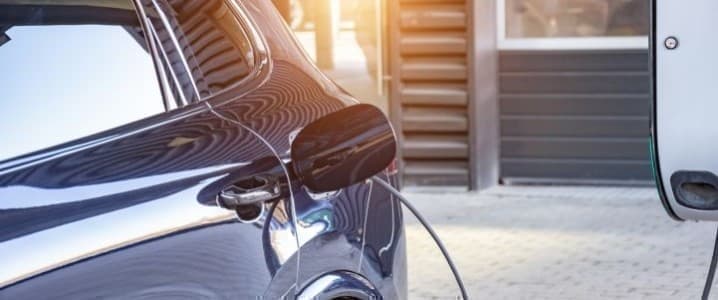Back in August, environmental group Greenpeace revealed that China approved more than 50 gigawatts of new coal power in the first half of 2023 alone, and continues building coal-fired power plants at a record clip. China consumes nearly half of the world’s coal and ranks as the world’s biggest importer of oil. It’s, therefore, somewhat ironic that China has also emerged as the indisputable world leader in clean energy: China accounted for $546 billion, or nearly half, of the $1.1 trillion that flowed into the sector in 2022.
China’s EV sector stands head and shoulders above its peers. Nearly 6 million EVs were sold in China in 2022, good for more than 25% of all new vehicles compared with just 8.6% throughout the entire EU. Only Norway sells a larger percentage of electric cars than China at 80%, although China outsells Norway 43:1. Of the 850,000 EVs that the EU imported last year, more than half came from China thanks to the country’s ability to churn out quality vehicles at price points the West can only dream of. For instance, the MG4, the popular fully electric hatchback launched in the UK in 2022, is made by China’s biggest carmaker, SAIC. In May, Allianz warned that Chinese-made EVs could cost European carmakers €7bn (£6bn) a year in lost profits by 2030.
Given this backdrop, it comes as little surprise that researchers have predicted that China will lead the race to EV battery recycling in the coming decades. Scientists from the University of Munster have predicted that China will be able to employ recycling to fully meet its own demand for battery lithium from 2059 onwards, at least a decade ahead of the U.S. and its western allies. The researchers have predicted that China will be able to meet its demand for cobalt and nickel through recycling after 2045 and 2046, respectively. To arrive at these conclusions, the team used data from market forecasts and current research work on developments in battery production, sales and the associated demand for raw materials. Related: Oil Rig Count Sees Small Loss As WTI Recovers To $70
"The demand for raw materials could also be met much earlier by recycling as a result of a reduction in battery size and by avoiding a so-called 'second life' for batteries, for example as stationary storage units for solar power," PhD student and the study’s corresponding author Jannis Wesselkämper has said.
China is currently home to some of the world’s most advanced EV battery manufacturing plants. Shenzhen-based EV company BYD is widely regarded as China’s biggest EV success story. The company set up shop in the mid-1990s as a smartphone manufacturer before switching to EVs where it applies its cutting-edge battery knowledge to make high quality yet affordable batteries. The most advanced car battery in the world is considered to be Blade, made by BYD, thanks to having some of the fastest charging times. Top EV manufacturers including Tesla Inc.(NASDAQ:TSLA) and Toyota Motors (NYSE:TM) use blade batteries in some of their models.
BYD’s big success comes from its highly integrated supply chain, including control of the mining of minerals critical to battery production. BYD has developed close relationships with dozens of miners and processing companies. In April, the company struck a deal with Chile to build a $290m lithium cathode factory in the mineral-rich South American country. UBS has predicted that Chinese-controlled mines will produce almost a third of global lithium supply by 2025.
That innovation has translated into bumper profits for BYD: the company has forecast profit growth of 225% for the second half of the current year, good for 10.5bn yuan.
US Battery Recycling
The Inflation Reduction Act (IRA) provides a federal tax credit of up to $7,500 for new EVs but on condition that the batteries must meet new provisions aimed at strengthening the domestic supply chain.
One of the provisions is that by 2027, 80% of the value of critical minerals in the EV battery must be mined, processed or recycled in North America or in countries with a free trade agreement with the United States. Starting in 2024, EVs that contain battery components or minerals from so-called “foreign entities of concern”, including China, will not be eligible for the Clean Vehicle Credit, giving local manufacturers a powerful incentive to recycle locally manufactured batteries.
Currently, EV battery recycling plants in the U.S. are mostly being built in regions where EV and lithium-ion battery production sites are already located thus creating an ecosystem where the recycled material can easily be fed back into EV production lines. The U.S. currently has the capacity to recycle at least 105,150 tons of battery minerals annually, enough to produce 220,300 electric car batteries each year or about a fifth of EVs sold in the country in 2023.
By Alex Kimani for Oilprice.com
More Top Reads From Oilprice.com:
- EU to Allow Members to Ban Russian Pipeline Gas
- China’s Oil Demand Growth Is Set for a Significant Slowdown in 2024
- Saudi Arabia May Have Set the Price of Its Oil Too High



















The answer to this irony is energy security which takes precedence over everything including climate change goals for the worlds biggest economy based on (PPP).
Dr Mamdouh G Salameh
International Oil Economist
Global Energy Expert